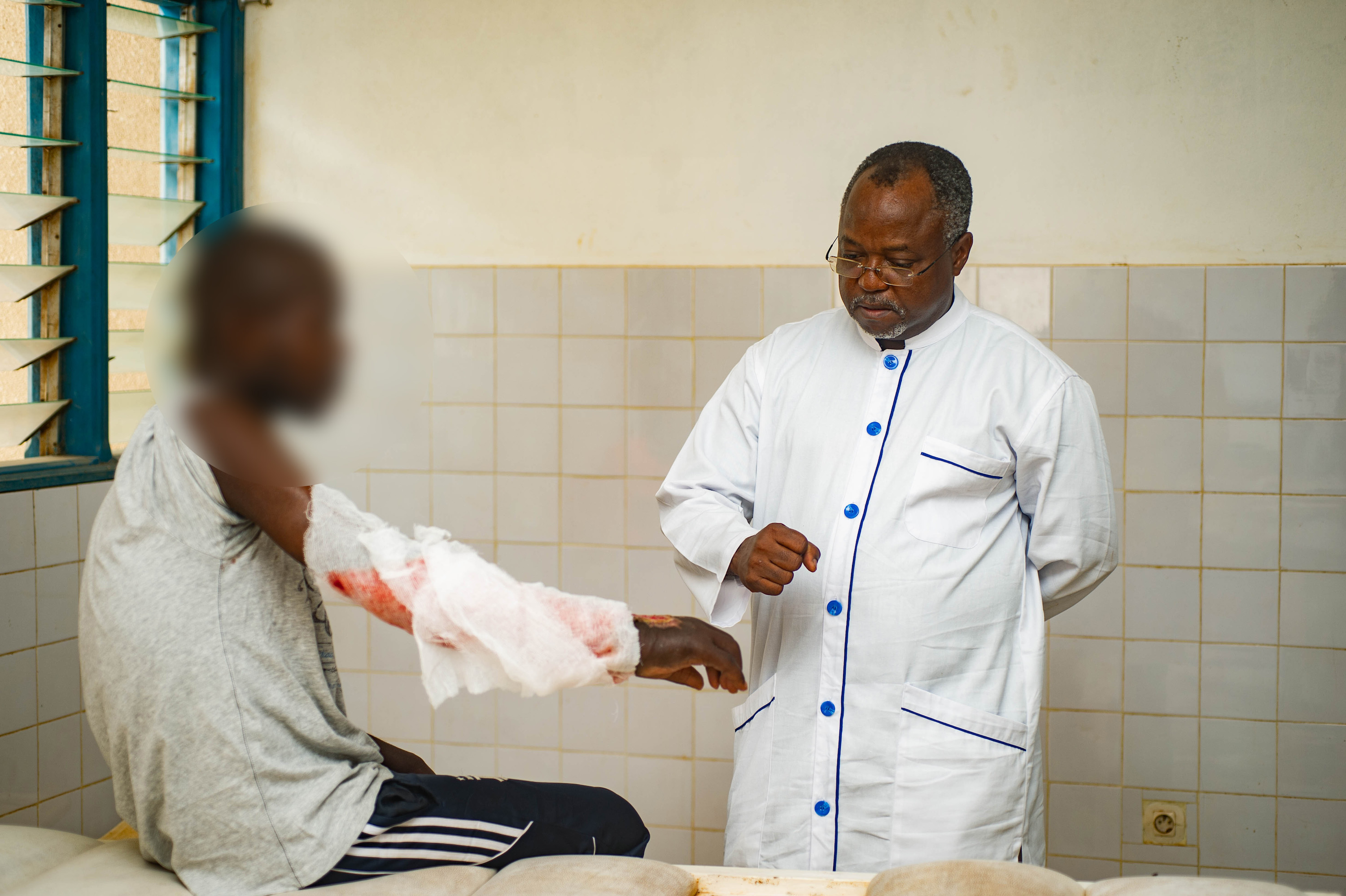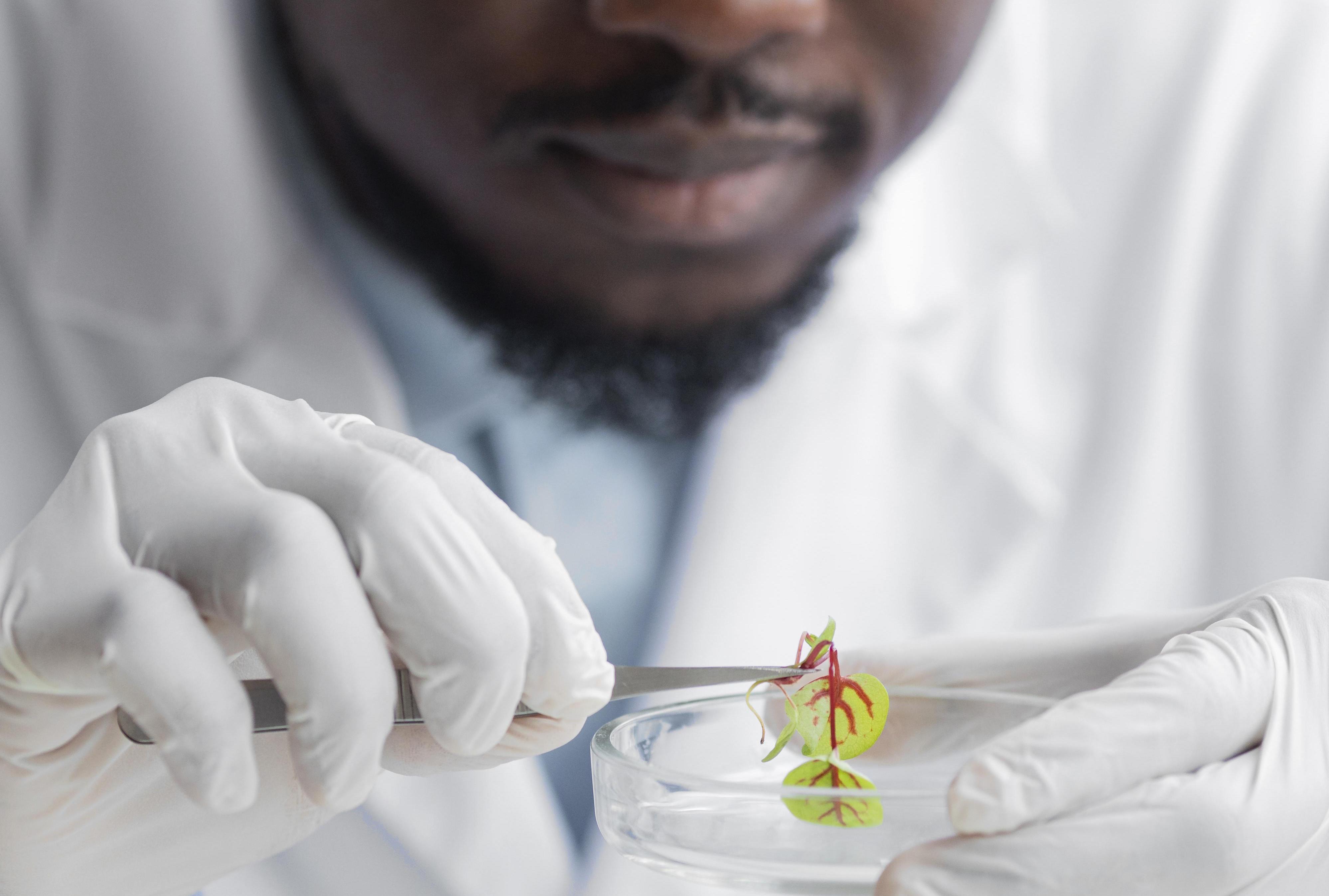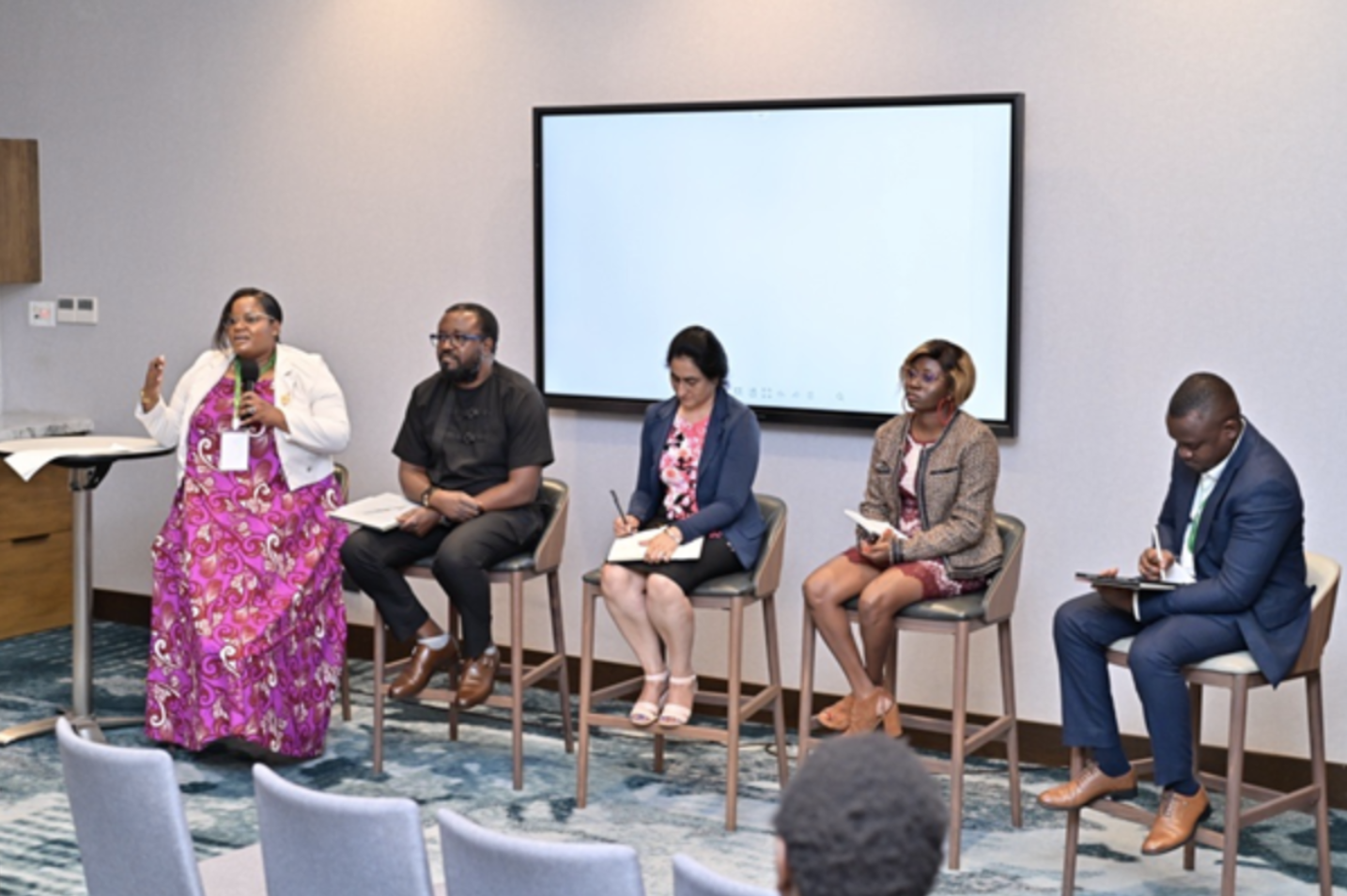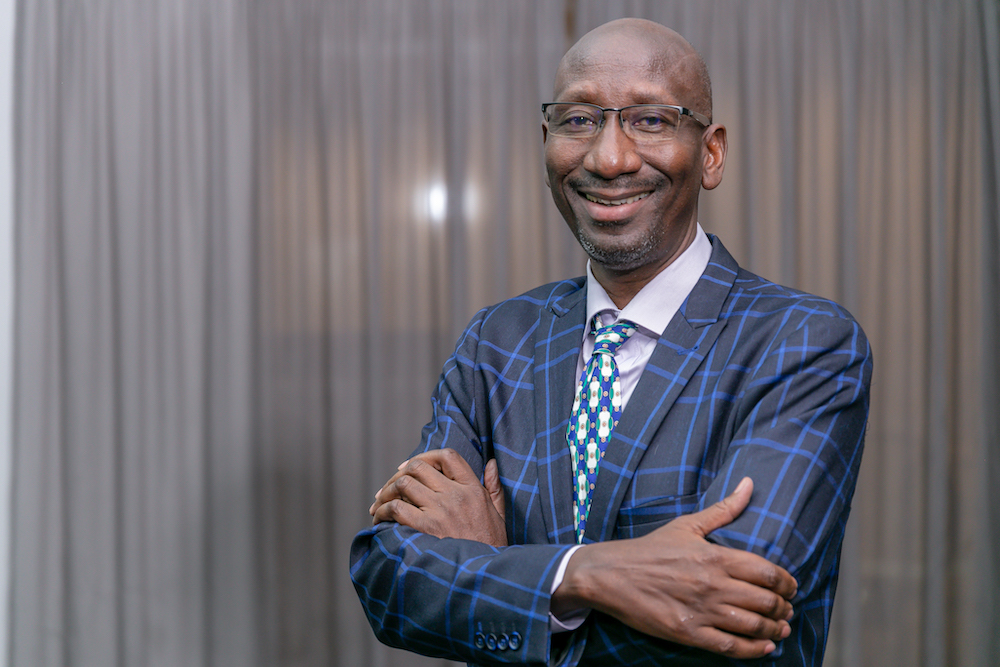
Impact Stories
A One Health solution for Buruli ulcer and chronic wounds management in Côte d’Ivoire
Wednesday, September 13, 2023

By Emmanuel Dabo, Afrique One REACH
The first case of Buruli ulcer was diagnosed in Yamoussoukro, the political capital of Côte d'Ivoire, in 1978, and it has since become endemic in Côte d’Ivoire. Buruli Ulcer, according to the World Health Organization (WHO), is caused by a bacterium called Mycobacterium ulcerans that produces a toxin that causes skin damage. The WHO has also determined that without early treatment, Buruli ulcer can lead to long-term disability
In 2007, faced with the growing numbers of Buruli ulcer cases in Taabo and the surrounding localities, the Ivorian authorities and development partners created a Buruli ulcer treatment and management center at the general hospital of Taabo to provide the necessary long-term treatment of the disease.
To contain the problem and improve patient care management, a multidisciplinary research project, led by Afrique One-ASPIRE, a DELTAS Africa initiative, focused on zoonotic elimination using the One Health framework. The purpose of the project was to add to the understanding of the perceptions of the disease by the populations that are impacted by it and the social, environmental and clinical factors impacting the prevalence of the disease.
A multidisciplinary approach to engage the public to seek treatment early
In 2019, the project engaged communities and other stakeholders to increase their understanding on the role of the environment and local practices in the transmission and expansion of the disease.
The project sent trained community health workers to visit villages to detect wounds as soon as possible and to refer patients to the appropriate health services, depending on the severity of the wound. After evaluation, serious cases were treated at the Buruli Ulcer Ward in Taabo General Hospital now called the Wound Management Unit (WMU), according to Dr Bognan Valentin Koné, Sociologist and Afrique One-ASPIRE fellow.
To address the problem of the burden of wounds and people seeking treatment late, a multidisciplinary approach that includes epidemiology, sociology, economy, and nutrition has been used with the aim of generating knowledge about the socio-ecological factors surrounding wound management and improving the model for wound care. The various studies have enabled (i) a better understanding of the epidemiology of wounds, (ii) analysis of the cost-effectiveness of wound management according to WHO recommendations (iii) identification of the barriers to access of care and the associated costs from a social perspective, and (iv) evaluation of the contribution of nutrition to the rapid healing of wounds.
One Health to address the complexity of wounds in Taabo
One Health is a collaborative action and the integration of academic and non-academic knowledge to address health threats at the human, animal, and environmental interface such as Buruli ulcer. The approach recognises that multiple disciplines, sectors, and communities have important contributions to understand and generate new knowledge and co-design collective action for disease control and generate societal outcomes. The project has mobilised communities as well as the public health, agriculture, and nutrition sectors for a common understanding of the problem and identifying sustainable solutions.
Data and knowledge generated from this approach are the basis for initiating dialogues with the community for co-constructing interventions. A dialogue on the management of Buruli ulcer involved traditional healers and community health workers, who are the heart of a community-based approach to wound management. Their involvement helps in avoiding the chronicity of wounds and associated co-morbidity.
Yet convincing people, especially those in rural communities, to express their needs and concerns and thus trust and seek modern health care can be difficult. Afrique One PhD candidate in sociology, Dognimin Ismaël Coulibaly found from his master’s study that, according to local perceptions “wounds are divided into two categories: first an ordinary wound whose cause is clearly known and a second wound whose origin is unknown and identified as metaphysical wounds because they are not related to tangible, concrete causes.” The Buruli ulcer falls into the second category despite the scientific knowledge on aetiology, effective diagnostic and treatment.
In the case of Buruli ulcer wounds, the first reflex of 80 percent of the patients is to turn to traditional healers and at a later stage to the WMU. Moreover, studies have revealed the economic barriers for patients seeking modern health care. These include the cost of transport, hospitalisation, food, dressings, and family care, among others. These direct and indirect costs reduce access to WMU and thus are deterrents for patients and their families.
Buruli ulcer and chronic wound care
Buruli ulcer patients who seek traditional healers’ services are subject to several dietary restrictions that impede access to proteins, micronutrients, and vitamins. Unfortunately, these restricted foods have the potential to provide nutrients that accelerate wound healing. Non-endemic foods such as orange flesh sweet potato and soy have been negotiated with the traditional healers and patients as a nutritional supplement to support malnourished patients under treatment.
The negotiations were guided by a study that enrolled 68 BU patients with chronic wounds and related malnutrition from May 2019 to January 2020 and found that nutritional reinforcement and targeted BU antibiotics speed healing.
Dr Didier Koffi, a medical doctor and Afrique One PhD candidate in nutrition, says “Orange Flesh Sweet potato with its richness in beta carotene and carbohydrate, associated to soy, full of protein, provide the nutrients that are necessary for motivation, fast wound healing and nutritional patient rehabilitation.
The impact of a One Health approach to wound management
The One Health approach contributed to diagnosing many other chronic pathologies (Malnutrition, Diabetes, HIV, TB, and Cancer) wounds. If managed early, most wounds heal rapidly, reducing the need for antibiotics use. Reduced healing times, in turn, reduce the cost of care and associated anxiety and depression. The project directly contributed to the health education of community health workers, especially in active and early BU detection, and led to health authorities recognising the importance of the One Health approach in their Buruli ulcer control strategy. Effective wound management and improved quality of care locally has also made WMU a national reference centre for wound care.
“The control and fight against Buruli ulcer, an endemic disease in Côte d’Ivoire has been difficult because interventions were only focused on the biomedical approach. But through the One Health approach, we have identified factors that increase compliance to treatment, accelerate wound healing and promote better patient management,” says Professor Bassirou Bonfoh, Director of Afrique One.
Watch the video 👉🏼 Buruli ulcer: Feed to heal https://www.youtube.com/watch?v=xzfRfMaslrk&t=64s



